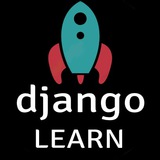tg-me.com/djangolearn_ir/1010
Last Update:
یک مبحثی که خیلی وقتها آدمهای رو داخل #جنگو گیج میکنه موضوع Aggregation هستش. برای مثال کوئری پایین:
>>> from django.db.models import Avg, Max, Min
>>> Book.objects.aggregate(Avg("price"), Max("price"), Min("price"))
# {'price__avg': 34.35, 'price__max': Decimal('81.20'), 'price__min': Decimal('12.99')}
خب این کوئری مشخصه چه کاری داره انجام میده، همه میتونن بفهمنش مخصوصا وقتی خروجی کوئری رو میبینن، اما اگر ازشون بپرسید خب Aggregation چی هستش هیچ ایده ای ندارن! و این ماجرا از ضعف در دانش SQL سر چشمه میگیره. چون خیلی از آدمهایی که دارن #django کار میکنن مستقیم سراغ جنگو اومدن و نرفتن چیزهای دیگه رو مطالعه کنن و یاد بگیرن.
اسم Aggregation داخل ORM جنگو مستقیما از SQL میاد. در SQL یک سری فانکشن وجود داره که بهشون Aggregation functions میگن و کارشون خلاصه سازی اطلاعات:
MIN() - returns the smallest value within the selected column
MAX() - returns the largest value within the selected column
COUNT() - returns the number of rows in a set
SUM() - returns the total sum of a numerical column
AVG() - returns the average value of a numerical column
و خب شما میتونید داخل کوئریهای SQL ازشون استفاده کنید و دیتا خروجی رو خلاصه سازی کنید و یا یک آمار ازش دربیارید. مثلا میانگین قیمت کتابهای تو سال اخیر و ...
یک کوئری مثال برای Aggregation میتونه این باشه:
SELECT AVG(Price) as price_avg FROM Books WHERE puddate='2023-01-01';
خب از اونجایی که ORM جنگو در نهایت قرار کار همین SQL نوشتن برای شما انجام بده و کوئری شمارو به SQL تبدیل کنه شما دقیقا همین کوئری میتونید داخل جنگو به این صورت بنویسید:
>>> from django.db.models import Avg
>>> from datetime import datetime
>>> Books.objects.filter(pubdate=datetime(2023, 1, 1)).aggregate(price_avg=Avg("price"))
میتونید لیست فانکشنهای Aggregation خود SQL داخل این لینک ببینید و ساپورت جنگو هم میتونید داخل این لینک ببینید.
در نهایت از دانش SQL غافل نباشید و حتما یادش بیگیرید. هرچی بیشتر SQL بدونید زندگی راحتتری خواهید داشت.
@TorhamDevCH
BY جنگولرن

Share with your friend now:
tg-me.com/djangolearn_ir/1010
